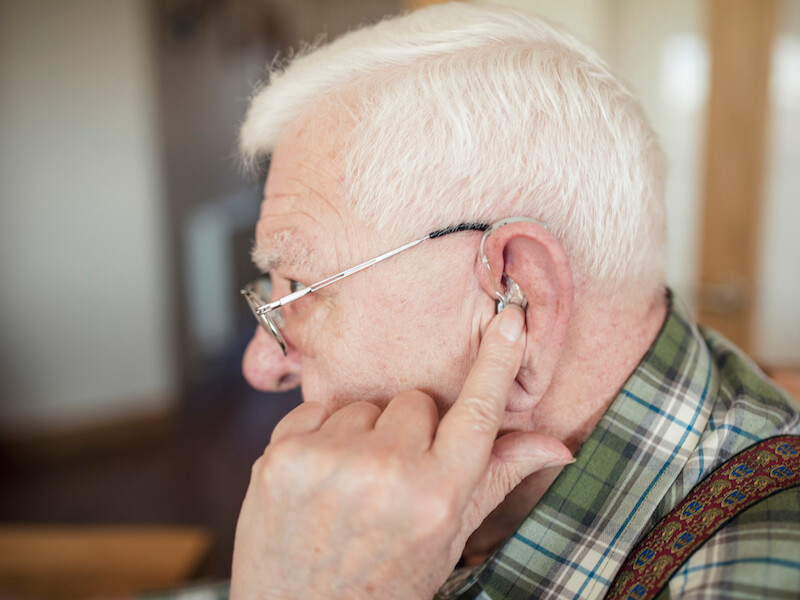
Do you feel as if your hearing aid batteries are not keeping a charge as long as they should? Here are a few surprising reasons that might occur.How long should hearing aid batteries keep a charge? The ordinary hearing aid battery lasts anywhere from 3 to 7 days. That’s a very wide range. Actually, it’s so wide that it probably can’t help you predict what should be happening with your hearing aid. You may be on day 4 at the grocery store when all of a sudden, things get quiet and you can’t hear the cashier. Or it’s day 5 and you’re having a call with friends when suddenly you find yourself feeling really alone because you can no longer follow the conversation. Now, you’re watching the TV. All of a sudden you can’t hear the news. Wait, it’s only day 2. Yes, sometimes they even drain before that 3-day mark. It’s more than a little inconvenient. You’re missing out on life because you don’t know how much battery power you have left in your hearing aids. Here are the likely culprits if your hearing aid batteries die too soon.
A Battery Can be Drained by Moisture
Did you know that humans are one of the few species that release moisture through their skin? It’s a cooling method. We do it to get rid of excess sodium or toxins in the blood. You might also live in a climate that is moist and humid. The air vent in your hearing aid can become clogged by this additional moisture and it will be less effective. Moisture can also mix with the chemicals of the battery causing it to drain faster. You can prevent moisture-related battery drainage with these steps:
- Moist environments, like the kitchen or bathroom aren’t a good place to keep your hearing aids
- if your storing them for several days or more, take the batteries out
- Open the battery door when you store the hearing aids
- Obtain a dehumidifier for your hearing aids
Batteries Can be Depleted by Advanced Hearing Aid Features
You get a much better hearing aid nowadays than you did even ten years ago. But if you’re not paying attention, these advanced features can cause faster battery drain. You can still use your favorite features. But be aware that if you stream music all day from your smartphone to your hearing aids, you’ll have to replace the battery sooner. Bluetooth, multichannel, tinnitus relief, noise canceling — all of these extra features can drain your battery.
Batteries Can be Impacted by Altitude Changes
Moving from a low to high altitude can drain your batteries, especially if they’re on their last leg. When flying, skiing or climbing always brings some spare batteries.
Perhaps The Batteries Aren’t Really Low
Some hearing aids tell you when the battery is low. Generally speaking, these alerts are giving you a “heads up”. It doesn’t mean you have a depleted battery. Furthermore, the charge can at times drop temporarily due to altitude or environmental changes and that can cause a false low battery warning. In order to stop the alarm, remove the batteries, and then put them back in. The battery might last a few more hours or even days.
Handling Batteries Improperly
Wait until you’re ready to use your hearing aid to remove the tab from the battery. Make sure you wash your hands before handling your hearing aids or batteries to avoid getting hand oil or dirt on them. Never freeze hearing aid batteries. This trick might extend the life of some types of battery but it doesn’t work with hearing aid batteries. Simple handling errors like these can make hearing aid batteries drain more quickly.
It’s Not a Good Plan to Purchase a Year’s Supply of Batteries
Buying in bulk is often a smart money move if you can afford to do it. But the last few batteries in the pack most likely won’t have full power. Unless you’re fine with wasting a few, try to stick to a six month supply.
Buying Hearing Aid Batteries on The Web
Buying online can be a good thing. There are some really good deals out in cyberspace. But some less honest people sell batteries on the internet that are very close to the expiration date. They might even be past their expiration date. So you need to be careful.
Both alkaline (AA, AAA, etc.) and zinc hearing aid batteries have an expiration date. If you were going to buy milk, you would check the expiration date. You should use the same amount of care with batteries. If you’re going to get the most out of your pack, make sure the date is well in the future. It’s probably a good idea to message the vendor if there isn’t an expiration date or even better, come see us for your battery needs. Only purchase batteries from trusted sources.
Modern Hearing Aids Are Rechargeable
There are several reasons that hearing batteries might drain rapidly. But by taking some precautions you can get more energy out of each battery. If you’re in the market for a new set of hearing aids, you might consider a rechargeable model. You put them on a charger each night for a full charge the next day. The rechargeable batteries only need to be replaced every few years.
